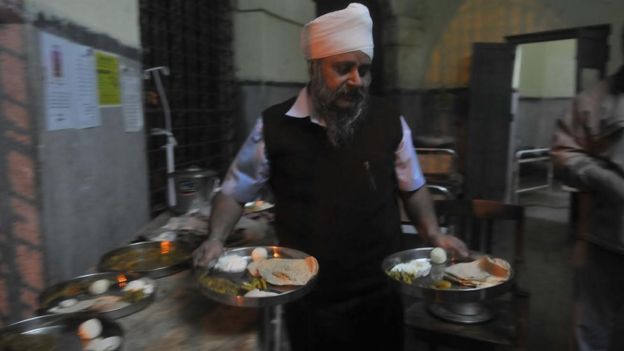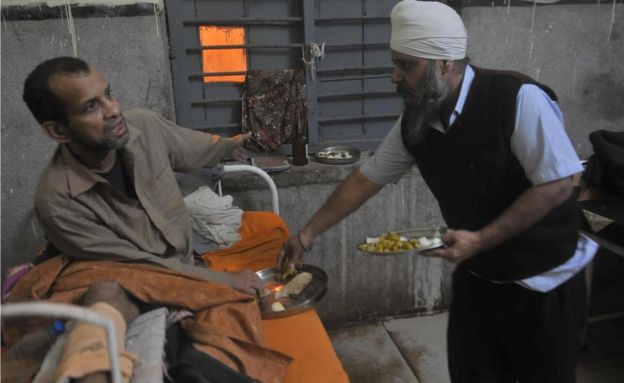When you ask a man of God a question be prepared to get an answer where you yourself are involved in the answer.
Once a king in India went to Guru Nanak Dev Ji and asked: "O Guru! As you told us, God Himself supports His true worshipper, but God has so many apostles, why does He support Himself? Why does He not send His apostles to help the worshipper?"
As he said this, his own son who was playing on the bank of a river nearby slipped into the river. The king did not wait for a second and jumped in the river as well to save his child.
After saving his child he returned to the Guru. The Guru asked: "My dear friend, you were sitting here with me a minute ago and why did you jump in the river?"
The king explained that his son had slipped into the river and he went to save him.
Then the Guru asked: "Dear friend, you have so many servants, why did you jump in the river yourself? Why did not you send your servants to save him?"
The king said: "By the time I would have asked my servants, he would have drowned. I love my child very much and do not want to lose him at any cost."
Then Guru said: "My dear friend, God loves His worshippers the same way as you love your son. That is why He Himself saves His true worshipper."
Once a king in India went to Guru Nanak Dev Ji and asked: "O Guru! As you told us, God Himself supports His true worshipper, but God has so many apostles, why does He support Himself? Why does He not send His apostles to help the worshipper?"
As he said this, his own son who was playing on the bank of a river nearby slipped into the river. The king did not wait for a second and jumped in the river as well to save his child.
After saving his child he returned to the Guru. The Guru asked: "My dear friend, you were sitting here with me a minute ago and why did you jump in the river?"
The king explained that his son had slipped into the river and he went to save him.
Then the Guru asked: "Dear friend, you have so many servants, why did you jump in the river yourself? Why did not you send your servants to save him?"
The king said: "By the time I would have asked my servants, he would have drowned. I love my child very much and do not want to lose him at any cost."
Then Guru said: "My dear friend, God loves His worshippers the same way as you love your son. That is why He Himself saves His true worshipper."




